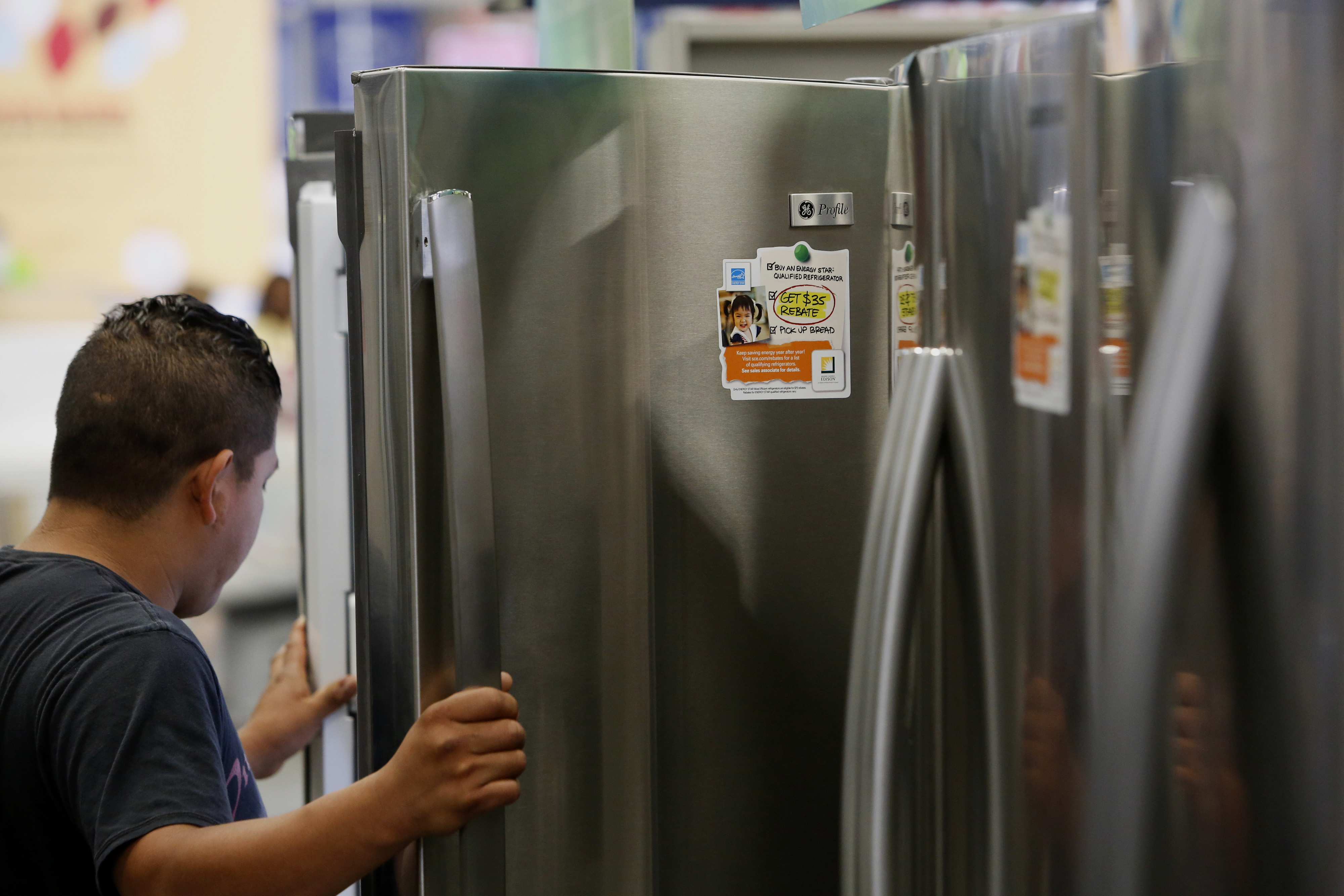These Fridges Won’t Dispense Filtered Water Unless You Pay Extra for ‘Official’ Filters With RFID Chips

Credit to Author: Karl Bode| Date: Thu, 23 Jan 2020 20:25:59 +0000
For years now, corporations have been using technological tricks to wage a not-so-subtle war on everything from discount printer cartridges to cheaper replacement coffee pods. And with U.S. regulators and lawmakers largely uninterested in preventing these companies from ripping you off, it’s an aspect of late stage capitalism that’s only getting worse.
Case in point: a few years ago, General Electric began making it far more difficult for users to replace their refrigerator water filters with cheaper third party options.
As it stands, fridge makers generally recommend you replace your fridge water filter every six months. For years, GE, like many manufacturers, let users replace this filter with standard RPWF filters, available for as little as $20 from a number of different competitors.
But a few years ago something changed. GE began requiring that users instead use GE-specific RPWFE filters usually costing users $50 or more. Try to use a third-party filter, and your fridge will no longer provide filtered water. Why? GE’s newer fridges come embedded with RFID chips that ensure third-party water filters will no longer work, forcing you to pay a premium for an “officially sanctioned” carbon filter sold directly by GE.
Reddit is filled with complaints from users who stumbled unaware into GE’s arbitrary and costly rabbit hole. Unlike many fridges that just warn you with a light that you need to change your fridge’s filter, users say GE’s newer models actually stop you from getting filtered water or ice—unless you pony up the $50+ for a far more expensive GE-sanctioned water filter.
The GE website claims the RFID system is designed to help “prevent leaks,” and is quick to note that users receive a bypass plug (which you may have thrown away but can pay $25 to replace) that graciously lets users consume unfiltered water. The company did not respond to inquiries asking why any of these restrictions are necessary.
Despite this change having been implemented years ago, users continue to discover GE’s latest gift that keeps on giving. This Twitter user, for example, joined the festivities this week.
“Manufacturers should not be able to create parts that are designed to be replaced, and then create technological barriers that force you into their replacement parts,” the user complained.
Author and digital rights activist Cory Doctorow, who first noted the complaint, told Motherboard in an email interview GE’s ploy is just one of numerous efforts to steadily strip away consumer rights while erecting arbitrary technical and legal barriers to make an extra buck.
“Between software patents, anti-circumvention laws like Section 1201 of the DMCA, and laws like the Computer Fraud and Abuse Act (which potentially criminalizes violating terms of service), we have created a legal doctrine akin to 'felony contempt of business model,’” Doctorow said.
“Canny manufacturers can use a combination of these legal tools to make it a literal, jailable offense to arrange your affairs in ways that their shareholders disprefer,” he added.
Users looking to sue GE for ripping them off are technically banned from doing so under its terms of use, which requires users to instead participate in binding arbitration—a lopsided complaint process in which corporations win the majority of the time.
Creative users have figured out how to bypass the GE restrictions by effectively hacking their own refrigerator, tricking the RFID system into accepting third-party filters. But that’s a process users shouldn’t have to deal with in the first place, Doctorow said.
“We have no business being surprised that GE has come up with proprietary carbon, converting one of the most abundant atoms in our solar system to something that retails at a multi-hundred-percent markup,” he said. “Monopolists are gonna monopolize, and if you let them off the leash, you can't pretend to be upset when they go for your citizens' throats.”
Doctorow’s complaint is ironic given that one of his most recent short stories envisioned a future where users are forced to jailbreak their toasters just to have breakfast.
"This is what was in my mind when I wrote Unauthorized Bread: we're truly only a single RFID chip away from a dishwasher that refuses to wash unauthorized dishes, and one machine-learning computer vision classifier away from a toaster that refuses to toast unauthorized bread,” he said.
This article originally appeared on VICE US.